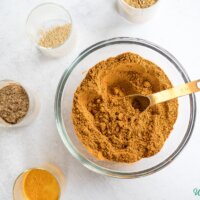He was upbeat but in pain when I used to visit him at the specialist liver unit in Kings College Hospital, London.
He was, however, determined to see the start of the inquiry and on that day – 28 September 2018 – he appeared live on the BBC alongside Su and a panel of guests.
It was a “bittersweet moment”, he said. He spoke about how he hoped the inquiry would “have the courage and the bravery” to get to the truth.
But he was clearly struggling. And when we had a coffee after the show, it was obvious Su was concerned.
A few months later, just before Christmas, she texted me out of the blue saying he had been rushed to hospital with a “gut bleed”.
Steve died, aged 62, on 23 December 2018 of organ failure – ultimately caused by the treatment he was given as a young man.
“He knew I was there and he said to me, ‘I love you’,” Su said. “Then at one in the morning, as he was holding my hand, he left me.”
Steve was buried in the couple’s favourite spot, overlooking Dartmoor National Park in Devon. His cause of death was given as liver failure, cirrhosis and “hepatitis C infection acquired from a contaminated blood product”.
He is one of about 350 haemophiliacs who, the inquiry estimates, have lost their lives to hepatitis C as part of this scandal. Another 1,640 NHS patients are thought to have died from the disease after being given a contaminated blood transfusion.
In the months after Steve’s death, Su didn’t back away from the campaign. She was a regular at the inquiry as it started taking witness evidence, hearing from people who had been infected as well as doctors, health officials and government ministers from the time.





